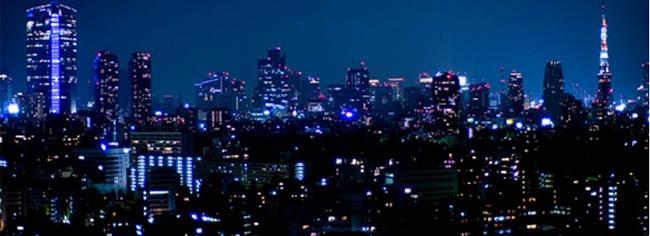Japan – Gambling Sleeping Giant
10 years ago

17 Nov
 Japan is the world’s third largest economy and an incredibly wealthy country. With its population of over 127 million, Japan’s traditional love of gambling and its relative freedoms one could imagine mean it being one of the world’s biggest gambling markets. But it isn’t, for the simple fact that gambling in Japan is, in the main, illegal.
Japan is the world’s third largest economy and an incredibly wealthy country. With its population of over 127 million, Japan’s traditional love of gambling and its relative freedoms one could imagine mean it being one of the world’s biggest gambling markets. But it isn’t, for the simple fact that gambling in Japan is, in the main, illegal.
But like most things in life – it isn’t quite as simple as that. The truth is that gambling is very big in Japan – albeit in rather strange and sometimes illegal ways.
Specifically, a few forms of gambling are legal in Japan. Those which are authorized include the lottery, pari-mutuel betting on horse racing, keirin (bicycle racing), scratch cards, powerboat racing (called “kyōtei”), and “auto-racing” (motorcycle racing), along with football toto wagers on the Japanese football “J-League”.
Every other type of gambling is illegal under Chapter 23 of Japan’s Penal Code.
Online gambling is currently very limited in Japan, though gamblers can often find ways around the rules. Strictly speaking, gambling online is restricted to lottery gambling, the afore-mentioned soccer toto – along with gambling on the previously mentioned four sports on which is legal via other means. Nevertheless, huge numbers of Japanese gamblers bet online via sites such as Betway, 32Red, bgo, Unibet and several others.
If Japan ever deregulates completely as may become the case as there are powerful lobbies in the country arguing that Japan’s gamblers should enjoy the same freedoms as in many other countries – there would be a veritable explosion in gambling and some of these sites would be in the driving seat.
Gambling in Japan is already enormous though, in a way that is unique to the country. If you walk down any major city street you care to imagine, you’ll see huge queues of men around the entrances to what are called “Pachinko” parlors.
This is equivalent to what we would see as simple slot machines in the west. But they’re hugely interesting because of their popularity. They give an indication of the untapped market for gambling in this gambling-crazy country where it’s still, on the whole, illegal!
The Pachinko parlors are full of Pachinko machines which are very straightforward slot machines playable for low-stakes, only. They’re repetitive, slightly kind of hypnotic and immensely popular. Yet here’s the thing; despite their simplicity, the
Pachinko industry in Japan is thought to be worth somewhere in the region of 20 trillion yen (over $170 billion) a year.
So how, you may well be asking yourself, are Pachinko parlors able to operate to such an enormous extent in a country that outlaws this kind of thing? Well, it’s because they play for small silver balls – seriously! The shops that operate the games get around the law by enabling players to exchange their winnings (the small silver Pachinko balls) for prizes or tokens. These, in turn, can be exchanged for real cash at a separate establishment – and hey presto, it’s legal albeit slightly ridiculous!
You can also smoke in these parlors which remains a massive pull in a country where smoking is hugely popular with so many people – yet you aren’t allowed to smoke in most public places. There are also many vending machines dispensing coffee, and they stay open into the night.
So if such a relatively boring pastime can be worth a figure of over $170 billion, it doesn’t take a huge leap of imagination to see what could happen if gambling was less restricted. And it may well be before the country hosts the 2020 Olympic Games in Tokyo.
The Japanese government is pushing for the legalization of casino gambling in time for the Olympics, as this could be a major source of funding to help pay for the Games.
What’s more – the Japanese legislative process is notoriously slow and complex and there are forces who don’t want to see any big relaxation in the laws – most obviously the Pachinko parlors.
Overall, though, it seems inevitable that the casinos will be in place well before the 2020 Games to help foot the bill. And with that tide-change will surely come a gradual shift in culture and a further relaxation of the online gambling laws that so many Japanese gamblers manage to find a way around anyways.
Little wonder, then, that so many operators are making their plans now, well in advance of any legalization actually happening. The Japanese market is mind-bogglingly big potentially – eclipsed only by its traditional rival China and, of course, the USA. And in both these markets, there are also indications that things are beginning to loosen up as lawmakers bow to the inevitable fact that gamblers are finding way around the legislation – and they’re missing out on potentially billions of tax dollars.
But Japan may be gambling’s first sleeping giant to wake up.







Comments
You need to be logged in to post a new comment